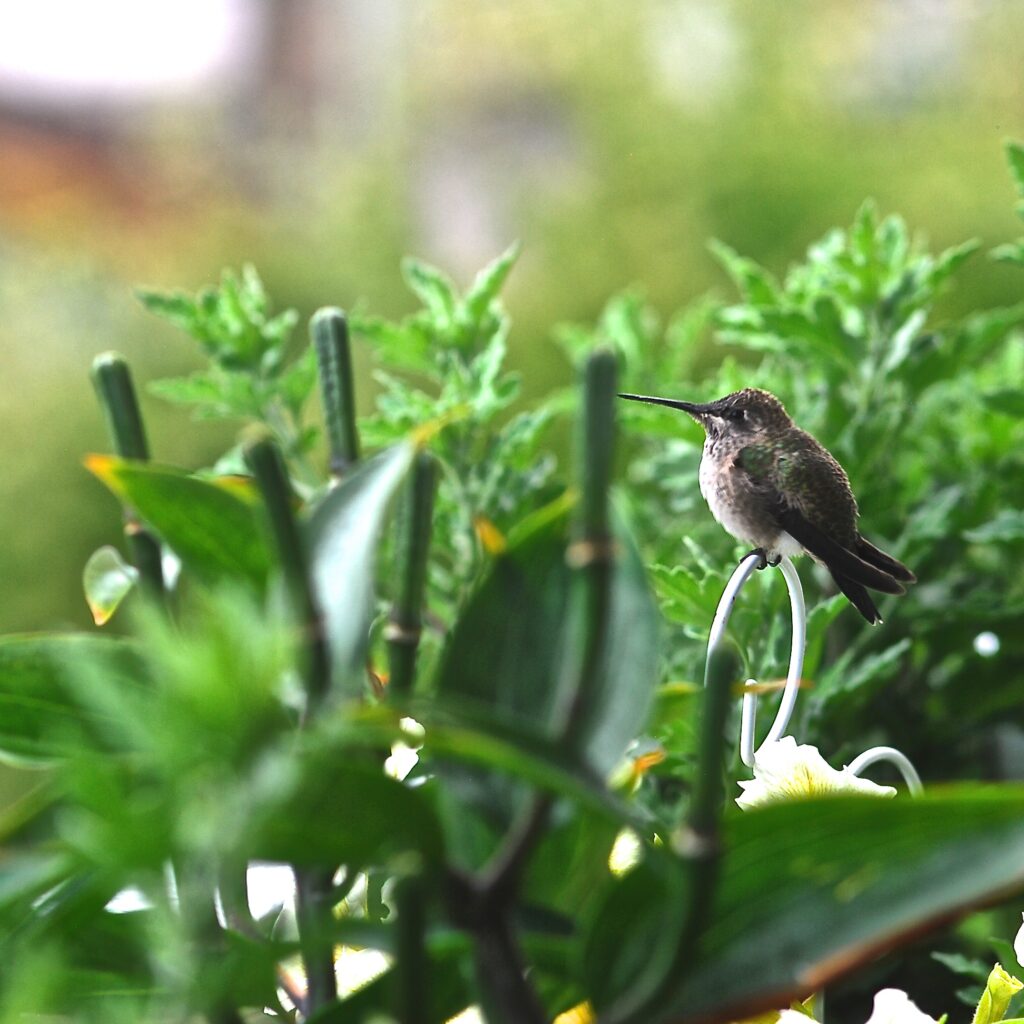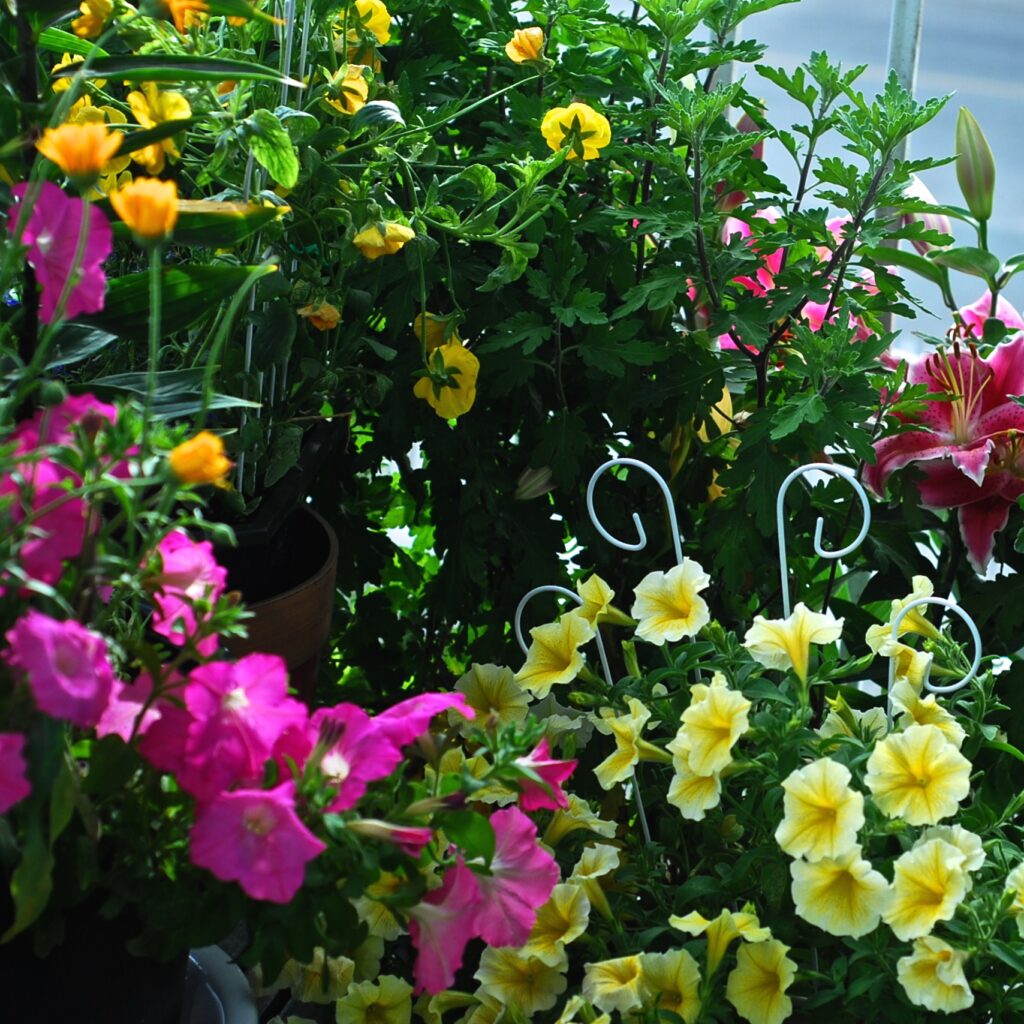The Many Benefits Of Growing Pollinators & Why Feeders Are A Farce
Even the smallest of gardens creates a vibrant oasis. Years ago, I used to have hummingbird feeders on the deck. But I have long since changed my mind about feeding any wild animals, especially with sugars and artificial flavouring.
Wild animals, to include the birds and the bees, know what they need, and are adept at finding natural food for their own systems. By doing so, they contribute a great deal to the immense ecosystem that surrounds them.
There are many reasons I no longer believe in feeding sugar water to hummingbirds. First of all, if you move or go on a long vacation, they are suddenly deprived of food they have become dependent on, and may become more vulnerable to predators, or have difficulty adapting. Or there could be too many birds concentrated in one area, just for the free meal. Maybe it even creates lazy little birds, addicted to refined sugar. Truthfully, they were born to thrive on the nectar from flowers, and get their protein from tiny insects.
Another valid reason to avoid feeders – is in the growing realization that it is not natural to feed birds simulated energy drinks. If you steer away from using sugar and food colouring, and buy the packaged variety instead, with claims to be all natural, or scientifically made to be the perfect food for hummingbirds, don’t fall for it. They don’t need a man-made boost. If anything, give them pure water to drink or splash around in.
Why is it so important for hummingbirds to be holistic in what they consume? Like bees, hummingbirds contribute a great deal to pollinating flowers. They have an important role. They are designed so they do not waste their energy.
Just as we are better to lean toward whole foods with all the micronutrients, why should it be any different for a fleeting wee bird? They will flit from one flower to the next, and take a little sip, like fine dining. They must enjoy the colour and variety, as they will occasionally stop and perch, to get an overview of their garden plate.
It is delightful to have the hummingbirds visit, and to see the activity of the bees and butterflies. They are busy contributing to the ecosystem, and are frequent visitors to the gardens that attract them.
The hummingbirds seem to really like the million bells flowers, especially the large pink super bells variety. They also hover around and take drinks from petunias a fair bit. The bell shapes are beak easies.
Bees and hummingbirds are especially attracted to bee balm, lupine, butterfly bush, bleeding hearts, petunias, trumpets and columbine as a few examples.
As far as the wider benefits of growing pollinators and attracting bees, hummingbirds and butterflies – it is interesting to note that up to 80% of all plants are dependent on pollinators to transfer their pollen.
In addition to avoiding sugar water feeders, in favour of planting a garden to provide pollinating nectars from brightly coloured flowers, avoid putting chemicals on the plants. Again, it is no different than what we want for our own food and health. At least we have the option of washing our fruit and vegetables in soapy water, but they do not – so we should be more considerate.
Pollinators are on the bright and busy side of life. They work for their food. They expand their goodness or fruit, in ways we seldom even notice. Yet we would notice if they were suddenly all gone. We take them so much for granted.
As we come to this juncture of real concern over climate change, we know we have to make changes. Everything we can do as individuals, to pay attention and focus on what is good for the earth – should tell us that gardens of all kinds, are near the top of the list of priorities.
Somewhere along the line, we developed a concept of success. For most of our lives, we measure success by the size of our homes, our bank accounts, our careers, and the cars we drive.
As we rethink our concept of success, we begin to notice the tiniest things in life – and what a monumental difference they can make.


